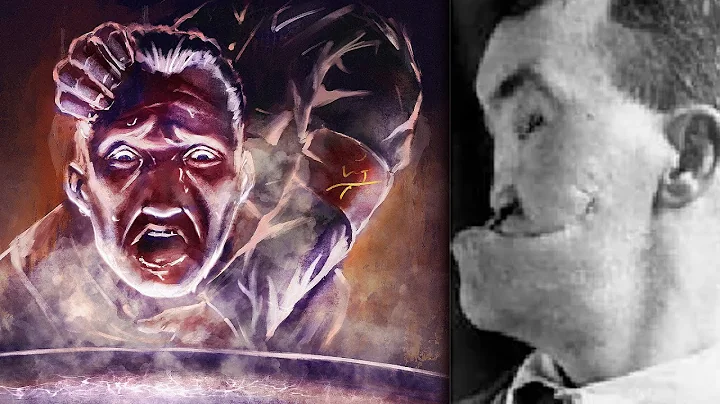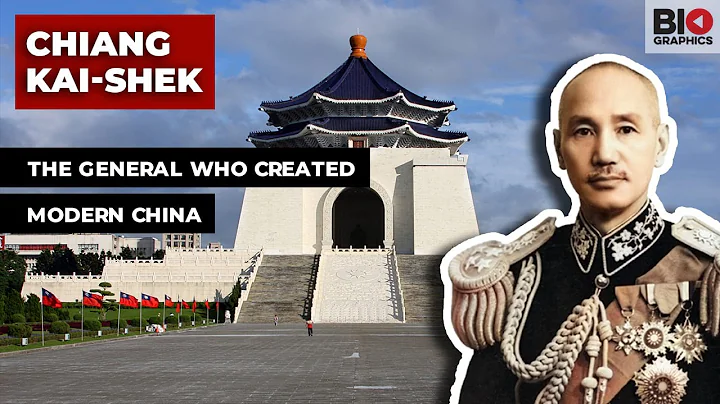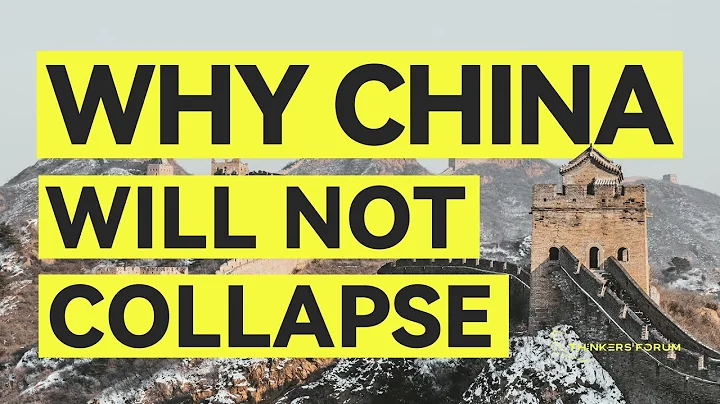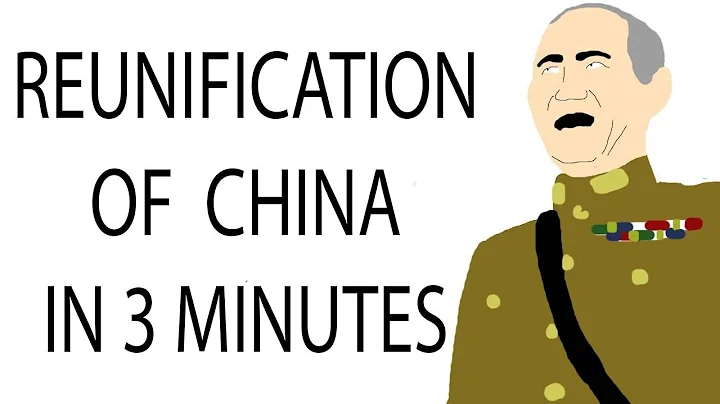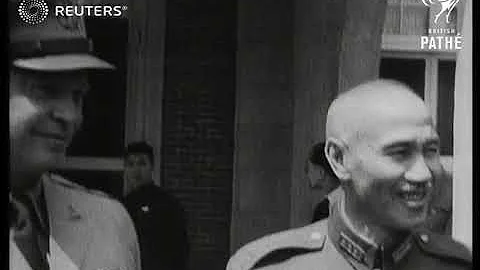In 2001, centenarian Zhang Xueliang ended his life on Hawaii Island.
Zhang Xueliang's life can be said to be a modern history of China. He once had the feat of changing the banner of Northeast China, and also experienced the shame of "non-resistance". He was also the biggest contributor to the "Xi'an Incident".
Some people think that he handed Northeast China over to the Japanese without firing a single shot, and is a sinner of the nation.
However, in the view of our party, Zhang Xueliang, who initiated the Xi'an Incident, is a national hero and an eternal hero. Both Chairman Mao and Premier Zhou gave him high praise.
So is Zhang Xueliang a hero or a sinner? Why does our party have such a high opinion of it?

1. From Northeast China to Non-Resistance
In the early morning of June 3, 1928, Zhang Zuolin returned to Fengtian by special train from Beijing.
At this time, the Japanese Kwantung Army was already planning to assassinate Zhang Zuolin. They planned to plant explosives at the intersection of Nanman Road and Jingfeng Road at Huanggutun Station in Shenyang, where the special train passed, and blow up Zhang Zuolin to death on the train.
At 5:30 a.m. the next day, Zhang Zuolin's special train exploded while passing Huanggutun Station . Zhang Zuolin was seriously injured and died in Shenyang a few hours later.
Zhang Xueliang then took over as the second Northeastern King. The domestic situation he faced was extremely complicated. At that time, the National Revolutionary Army's Northern Expedition had come to an end, and the warlord forces of Wu Peifu and Sun Chuanfang had been eliminated.
A unified voice is popular throughout the country. The five-color flag has been replaced by the Blue Sky and White Sun flag, and the Fengtian warlord who separatized the Northeast has become the last warlord of the old forces.
At that time, the people in the Northeast region were in dire straits due to years of war, and the people in the Northeast were also eager for the reunification of the country.

At this time, Chiang Kai-shek planned to weaken the three warlords of Yan, Li, and Feng. The smell of gunpowder between them was getting stronger and stronger, and the Central Plains War was imminent.
At this time, the Northeastern Army was previously defeated by the Northern Expeditionary Army , and its vitality was severely damaged. If war breaks out again, Fengjun will face a huge blow. Zhang Xueliang understands that what they need at this time is peace.
coincided with the establishment of the Nanjing National Government . In order to contain Japan, Britain and the United States chose to support the National Government, and Zhang Xueliang's influence from the Japanese was greatly reduced.
Therefore, for the sake of national unity and self-preservation, Zhang Xueliang finally decided to change the flag of the Northeast, and the entire Northeast was replaced by the Blue Sky and White Sun Flag. Although the power of warlords in various places was still strong at this time, the whole of China could be considered to have completed formal unification.
Zhang Xueliang's move was recognized by Chiang Kai-shek, and the two later became brothers with different surnames. Zhang Xueliang was appreciated by the people across the country because his decision gave the Chinese people a complete China.

At this time, Zhang Xueliang was a hero in promoting the unification of the country. The change of the Northeast Flag also won Zhang Xueliang a round of applause from all over the country. Even after many years, people still remember his achievements.
But this is not enough to be called a national hero, and the following incident will give Zhang Xueliang a lifetime of infamy.
On September 12, 1931, Zhang Xueliang came to Shijiazhuang. The purpose of his trip was to secretly meet with Chiang Kai-shek and at the same time tell his sworn brother about the current tense situation facing Northeast China.
After hearing the report, Chiang Kai-shek immediately ordered: "This meeting with you is mainly to ask you to strictly instruct the entire Northeastern army not to resist any Japanese attack!"
Chiang Kai-shek at that time had already learned that Japan was about to attack Northeast China. He started, but the Northeast Army at that time had no strength to resist the Japanese Kwantung Army, so he decided to choose the non-resistance policy and use the influence of the League of Nations to force Japan to resolve the issue peacefully.

Chiang Kai-shek's move seemed to make some sense at the time, because during the Beiyang Warlords period, disputes between China and Japan were resolved through international negotiations.
Because of the competition for interests between imperialists, this method can basically solve the conflict smoothly, so China did not lose any measured territory during the Beiyang period.
However, Chiang Kai-shek never imagined that the international situation at this time was no longer what it used to be, and his decision would have serious consequences.
At that time, Zhang Xueliang was very disapproving of the non-resistance policy. After all, the Japanese had a grudge against him for killing his father, and the 100,000 Northeastern Army under his command could still fight.
However, out of obedience to his superiors' orders, Zhang Xueliang finally passed on this order.
Before leaving, Chiang Kai-shek kept telling Zhang Xueliang that they could not tell the outside world that this was what he meant. It was these words that made Zhang Xueliang bear a lifetime of infamy, and the Japanese side's next actions were completely unexpected by both Jiang and Zhang. .
2. From The September 18th Incident to the ideological change
A week after Chiang Kai-shek issued the non-resistance order, the September 18th Incident, which shocked China and foreign countries, broke out. At this time, after some thinking, Zhang Xueliang finally decided to implement Chiang Kai-shek's order.
One hundred thousand Northeastern troops gave up resistance, and the Japanese army occupied large areas of Northeastern China in a few days.
On the third day after the September 18th Incident, the Chinese Communist Party issued a declaration calling on the people of the country to rise up to resist Japan. Only then did Zhang Xueliang realize that the Japanese were serious about launching a war of aggression against China.
However, at that time, one hundred thousand Northeastern troops had been transferred to the pass by Zhang Xueliang. At this time, the Northeastern defense forces were very weak. Zhang Xueliang immediately organized local armed forces to resist the Japanese army. However, the armed forces in the Northeast at that time were not enough to resist the Japanese army.
Zhang Xueliang subsequently called the Nanjing government seven times and expressed his determination to fight the enemy with the Northeast Army, hoping that Nanjing would provide support.
However, Chiang Kai-shek never expressed this and insisted on implementing the policy of non-resistance.

On February 6, 1932, the Japanese army invaded and occupied Harbin, and the entire three eastern provinces fell.
Chiang Kai-shek's wishful thinking did not work, and the League of Nations failed to stop the Japanese army's actions. After occupying the three northeastern provinces of , the Japanese army continued to launch a crazy invasion, and then Rehe Province also fell into the hands of the Japanese army.
At this time, Zhang Xueliang's policy of non-resistance became the object of condemnation by the people across the country. At that time, Zhang Xueliang was very depressed. He took the blame for Chiang Kai-shek's policy. Everyone thought that he had forgotten the hatred of family and country.
However, this was not the saddest moment for Zhang Xueliang. Soon after, Chiang Kai-shek also hinted that Zhang Xueliang would resign. After Zhang Xueliang resigned, Chiang Kai-shek also took advantage of the situation and pushed all the infamy onto Zhang Xueliang.
Zhang Xueliang endured all the infamy, but if he was deprived of the right to resist Japan, this would completely make Zhang Xueliang's heart drop to the bottom.
Zhang Xueliang then left China and traveled to Europe, during which he also accepted a lot of Marxist-Leninist ideas. During the
period, Chiang Kai-shek put forward the policy of "reconciling the internal situation before fighting against foreign aggression", and also formulated a "suppression of the Communists" plan, and then appointed Zhang Xueliang, who had returned to China, as the "suppression commander-in-chief".
Lao Jiang handed Yang Hucheng's Seventeenth Route Army and other Northwest Army to Zhang Xueliang, and asked him to take the Northeast Army and these troops to attack the northern Shaanxi base area.

However, Zhang Xueliang soon realized the power of our army. Not long after the battle, Zhang Xueliang lost three main divisions. Zhang Xueliang also began to think about the significance of this battle.
At the end of 1935, Chairman Mao proposed the strategy of "establishing an anti-Japanese national united front " and put forward a series of slogans such as "Chinese people will not fight Chinese people", "Go to the Northeast and drive away the Japanese" and so on.
Zhang Xueliang was touched when he heard this, and he began to have a good impression of our army after being exposed to Marxist-Leninist ideas.
After Chairman Mao knew Zhang Xueliang's thoughts, he felt that Zhang Xueliang was someone he could win over, because Zhang Xueliang's troops were all from the Northeast, and now that his hometown was occupied by the Japanese, he must have a strong homesickness in his heart.
Moreover, Zhang Xueliang's father was assassinated by the Japanese, and the entire army had a strong anti-Japanese sentiment, which was conducive to our army's united front work against Zhang Xueliang.

So in early 1936, our army sent someone to bring Premier Zhou’s autograph letter to Zhang Xueliang. At this time, Zhang Xueliang was very entangled in his heart.
He was actually very disgusted with Chiang Kai-shek's "communist suppression" policy. However, due to the relationship between superiors and subordinates and the sworn brotherhood, Zhang Xueliang still could not make up his mind to accept our party's suggestions, but at this time his heart had begun to waver. .
looked at Premier Zhou's autographed letter, which read: "The gun should be turned and aimed at the real enemy. The Chinese should not attack the Chinese. Killing brothers to feed the wolf's belly is unhuman."
At this time, Zhang Xueliang could no longer control it. He finally made up his mind to end this civil war . He hoped that the two parties could work together to fight against Japan. Then he did something that would go down in history. feat.
's non-resistance policy during the September 18th Incident indeed plunged Zhang Xueliang into a crusade across the country. To this day, many people are very angry about his original choice.
This incident also became an indelible stain in Zhang Xueliang's life. After all, the subsequent Anti-Japanese War caused great harm to the Chinese people. The national hatred between China and Japan even raised Zhang Xueliang's problem to the national level. .
It is true that Zhang Xueliang has an unshirkable responsibility for this incident, and the complicated evaluation of Zhang Xueliang comes from this. However, in the evaluation of our party and Premier Zhou, Zhang Xueliang was given a very high score. This is another reason. why?

3. Eternal hero and national hero
Zhang Xueliang sent someone to convey his thoughts to our party. The Party Central Committee was very happy to learn about Zhang Xueliang's ideas, and then sent Li Kenong as a representative to hold talks with Zhang Xueliang.
After three private and secret talks, the CCP decided to send Premier Zhou to Yan'an to discuss matters with Zhang Xueliang on behalf of our party.
On the evening of April 9, 1936, this was a great moment. Premier Zhou Enlai and Zhang Xueliang had a historic meeting in a Catholic church. This meeting also changed the subsequent history of China.
This meeting also made Premier Zhou and Zhang Xueliang become close friends. The two hit it off and talked all night long. After
came into contact with Premier Zhou, the person he admired the most gained an additional place in his heart. In the years that followed, Premier Zhou also thought of Marshal Zhang Xueliang from afar many times.

While Zhang Xueliang was determined to cooperate with our party, Yang Hucheng of the 17th Route Army also had the same idea. He also opposed Chiang Kai-shek's policy of "suppressing the Communists" and hoped that the two parties could unite to resist Japan.
Afterwards, the two had many heart-to-heart conversations. Zhang Xueliang revealed his disappointment over the years, while Yang Hucheng directly stated that he wanted to give Lao Jiang a way to "hijack the emperor to control the princes."
Zhang Xueliang was shocked when these words came out. He finally found someone with a common idea, and then he decided to act as planned.
In the early morning of December 12, 1936, Zhang Xueliang and Yang Hucheng led troops to surround Huaqing Pool. At that time, Chiang Kai-shek heard gunfire outside the house. He quickly escaped from the back door without changing his clothes.
The Northeastern Army later found the embarrassed Chiang Kai-shek in a stone crevice on the hillside of Lishan . Five days later, Premier Zhou brought a delegation from the Communist Party of China to Xi'an and held talks with Chiang Kai-shek.

At this time, Chiang Kai-shek, under pressure from Zhang Xueliang, finally chose to compromise. The two parties peacefully resolved the Xi'an Incident, and the National United Front was also formally established at this moment.
Out of guilt, Zhang Xueliang decided to personally send Chiang Kai-shek back to Nanjing despite everyone's dissuasion.
Little did he know that he would never come back. After going to Nanjing, Chiang Kai-shek began to retaliate against Zhang Xueliang.
From November 1938, Zhang Xueliang began a 54-year period of house arrest, during which he traveled to Nanjing, Chongqing, In many places in Taipei, personal freedom was finally restored in 1990. At this time, Chiang Kai-shek and Chiang Ching-kuo were both dead.
After the Xi'an Incident, our army faced a greatly reduced military pressure from the Kuomintang, and at the same time it also had a short opportunity to adjust. Subsequently, the two parties cooperated to resist Japan and formed a unified national front, which laid a good foundation for the final victory of the Anti-Japanese War.
Therefore, when Premier Zhou recalled Zhang Xueliang, he once gave a very high evaluation: a national hero and a hero through the ages.
Zhang Xueliang's efforts in the Xi'an Incident are indeed worthy of this praise. Without his efforts, the Anti-Japanese War would have been more severe, and the pressure on our army would have been greater, and it would even have affected the New Democratic Revolution. process.
The founding of New China gave the Chinese nation a new look, and Zhang Xueliang also made immortal contributions because of the Xi'an Incident.

Conclusion
Without Zhang Xueliang’s efforts, there would be no national united front. Zhang Xueliang’s huge contribution to the victory of the Anti-Japanese War enabled the Chinese nation to successfully repel the invaders.
The role he played in the Xi'an Incident was absolutely crucial, and it was for this reason that Premier Zhou praised Zhang Xueliang as a "national hero and eternal hero", and Zhang Xueliang's name is destined to go down in history.


